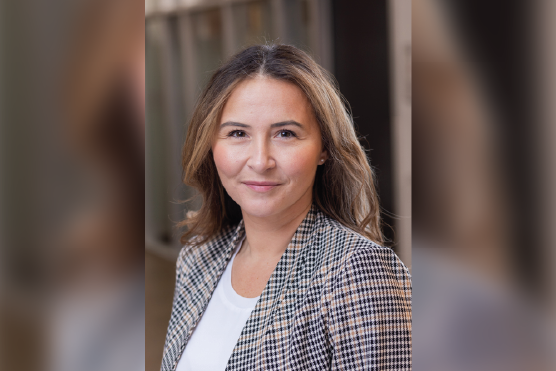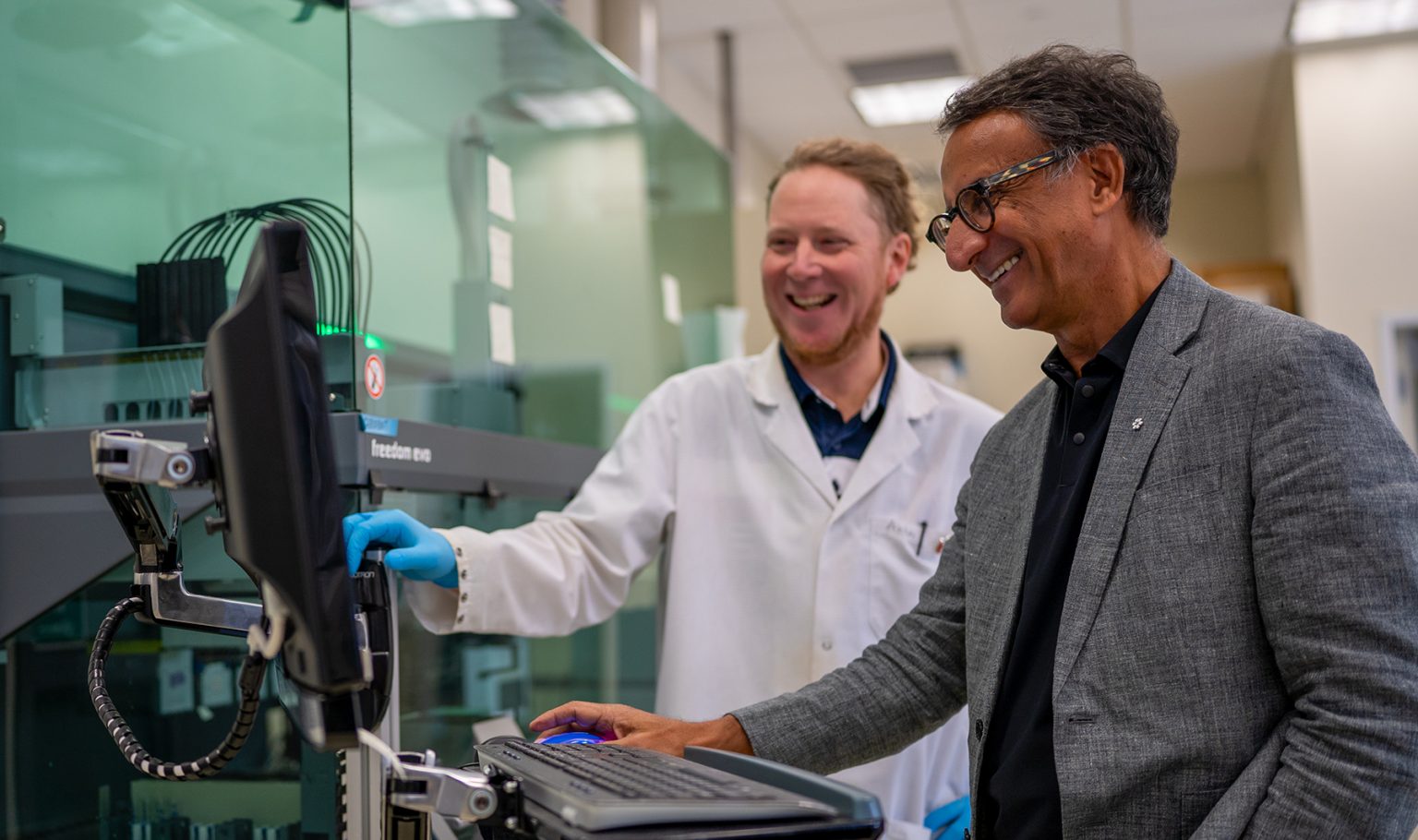Original story written and published by the McMaster Alumni Engagement Office
Audrey Patocs ʼ07, ʼ09, ʼ13
Faculty of Science
Advancing Aging Research at McMaster
Audrey’s career path is a testament to the power of interdisciplinary research and the impact of dedicated advocacy. Currently serving as the Research Manager at the McMaster Institute for Research on Aging (MIRA), Audrey plays a pivotal role in developing interdisciplinary research partnerships and projects that leverage McMaster’s extensive expertise in aging. Her work supports MIRA’s researchers and trainees in identifying opportunities and developing proposals for both internal and external research funding.
A Journey Back to McMaster
Audrey’s journey has come full circle, bringing her back to McMaster where she now works to build interdisciplinary research programs poised for impact and sustainability. “I connect researchers from across McMaster – we have 180 researchers spanning 48 departments and schools – to each other and to stakeholders in industry, community, and funders,” she explains.
Her path began with a focus on HIV/AIDS research. In 2005, after completing her undergraduate degree in Psychology at McMaster, Audrey took a field course in biology at Silpakorn University in Thailand. The course, focused on shrimp aquaculture, opened her eyes to the complex ecological, economic, and epidemiologic challenges in the field. Simultaneously, she was struck by the high HIV prevalence in parts of the world like Thailand, contrasting sharply with the access to combination antiretroviral therapy (cART) in wealthier countries.
This disparity led Audrey to pursue a second undergraduate degree in Biology and a master’s degree in mathematical biology, where she explored how bold, population-level interventions could predict disease incidence, under the supervision of Dr. Jonathan Dushoff. Her work took her to the Hamilton AIDS Network, the Ontario HIV Treatment Network, and St. Michael’s Hospital, where she engaged in projects ranging from HIV/AIDS awareness campaigns to longitudinal cohort studies on aging with HIV.
Formative Experiences in HIV Research
The HIV research culture was profoundly formative for Audrey. “Conferences were richly interdisciplinary, engaging basic scientists, epidemiologists, social scientists, clinicians, pharmaceutical companies, Indigenous leaders, and people with lived experience,” she recalls. The phrase “nothing about us without us” became a guiding principle, reflecting the HIV community’s commitment to inclusive research practices.
In 2016, after a decade in HIV research, Audrey took her first maternity leave. This break allowed her to reflect on her career and consider new directions. While HIV research remained close to her heart, the urgency of the early 2000s had diminished, along with much of the research funding. Concurrently, the challenges of population aging were becoming increasingly apparent.
A New Focus on Aging
Canada’s public health system, designed for a younger population, faces significant challenges in supporting an aging population with complex health needs. Questions about how innovation could help people age in their homes, maintain mobility, and independence became central to Audrey’s new focus. McMaster was building the infrastructure to address these issues, launching MIRA in 2016 with the support of a philanthropic gift from Chancellor Suzanne Labarge.
MIRA’s goal is to generate research that benefits older adults and caregivers by involving interdisciplinary teams and end users in projects. Audrey joined MIRA in 2017, driven by the goal of bringing together teams to address problems identified by older adults and patients. “So much of research is published but never leads to real-world implementation or impact,” she notes. “Some studies have estimated that the work that does generate impact takes an average of 17 years to do so!”
Supporting the Next Generation
Supporting trainees is a significant part of Audrey’s work at MIRA. “As a first-generation student, I often felt lost trying to navigate academia and the world of research,” she shares. Audrey is passionate about sharing insights with students and helping them prepare for success in research. MIRA provides not only funding but also capacity building, ensuring that the next generation of researchers is well-equipped to tackle complex challenges.
Life Beyond Research
Audrey’s time at McMaster also inspired pursuits outside her career. She played on McMaster’s women’s ultimate frisbee team, a group she describes as “amazing and gritty.” The lessons she learned on and off the field have stayed with her, and she continued to play for years after.
Audrey’s journey from HIV research to aging advocacy highlights the importance of interdisciplinary collaboration and the impact of dedicated research. Her work at MIRA continues to build on these principles, driving forward research that makes a real difference in the lives of older adults and their caregivers.

